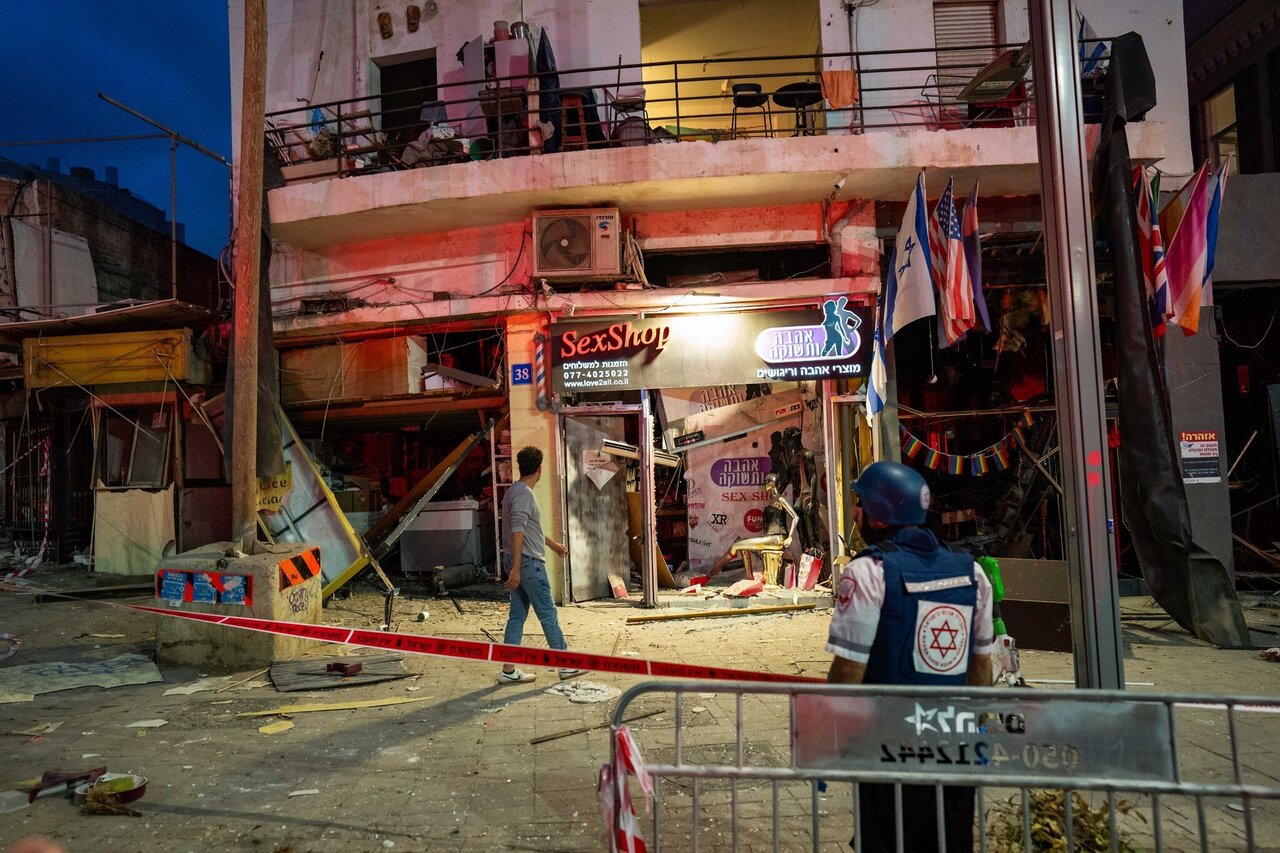Businesses close as Israel’s economy drops 3.5% after war with Iran

TEHRAN – A new report shows Prime Minister Benjamin Netanyahu’s much-ballyhooed decision to drag Israel into a direct war with Iran cost the regime the partial or total shutdown of countless businesses, as well as dents in consumer spending, export, and investment.
Israel’s GDP shrank by 3.5% due to the war with Iran, marking the first three-month decline since the regime’s economy plunged 20.8% in the last quarter of 2023, when it began an all-out war against Gaza, Lebanon, Yemen, and Syria, according to the Times of Israel.
The online newspaper quoted an analyst as saying that it is unclear whether Israel can recover from the losses.
Israel also lost a lot of money using expensive air defense missiles against Iranian projectiles that penetrated the occupied territories and left large swathes of Israeli cities in ruins. Hebrew media previously reported that at least 35,000 buildings were damaged in the aftermath of the Iranian attacks. Residents claim Israeli authorities have largely failed to compensate for these losses, initiate repairs, or provide sufficient shelter for the thousands now homeless.
While the full extent of the damage Israel incurred during the 12-day war is unclear to international audiences, France 24 recently reported that the Israeli regime has hidden the targeting of several important sites by Iran. Among these are Camp Moshe Dayan, a major IDF administration camp in Tel Aviv that houses intelligence and command units, and Israel's Defense Ministry. Hebrew media reported damage to nearby buildings when the attacks took place, but concealed the fact that these two important sites had been hit.
Israel began airstrikes against Iran’s nuclear, civilian, and military infrastructure on June 13, and later got the United Stated to come out of the shadows and directly hit three Iranian nuclear sites. However, analysts assess that Israel failed to achieve most of its objectives which included dismantling Iran’s military capabilities following the assassination of top Iranian generals early in the war, inciting popular unrest against the Iranian government, and completely destroying Iran’s nuclear capabilities.
Iran swiftly replaced the assassinated military officials on the first day of the war, with the new commanders immediately launching a retaliatory operation that went on to contain 22 waves of missile and drone attacks. The Iranian population rallied behind the government, presenting a unified front against Israel. Last but not least, despite significant damage to its nuclear sites, Iran maintains that it will continue its nuclear program and resume uranium enrichment in the future.
The war came to a halt on June 24, after Iran agreed to a proposal by Israel and Washington. No official ceasefire deal was signed between the two warring sides.
Despite the war backfiring on Israel, Iran’s military and political officials predict Netanyahu will try to attack Iran again in the future. Major General Seyyed Rahim Safavi, a senior adviser to the Leader of the Islamic Revolution Ayatollah Seyyed Ali Khamenei, stressed on Monday that Iran is effectively in a state of war, with the situation capable of collapsing at any moment.
“I prefer to say that a new war may be ahead, and perhaps afterward, no further war will occur,” the former head of the Islamic Revolution Guard Corps (IRGC) told reporters. Safavi added its necessary for Iran to remain vigilant, because peace with Israel and Washington can only be reached through force.
IRGC’s Deputy Commander Brigadier General Ali Fadavi, also said during a Monday event that Iran is ready to respond to any new aggression by Israel and the U.S., which “entered the war with full power”, but in the end, suffered immensely due to grave “miscalculations”.
It is believed that Tehran exercised restraint during the war, refraining from deploying its more advanced missiles and drones. This suggests that a future conflict with Iran would likely be more destructive and deadly for Israel. An Iranian military official previously stated that Iran has spent decades preparing the equipment necessary to sustain a war for at least two consecutive years. Israel had used up 75% of its air defense missiles by the end of the 12-day war in June.
Leave a Comment